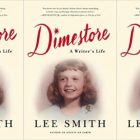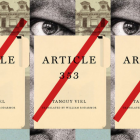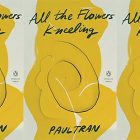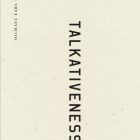The Myth of the Wild
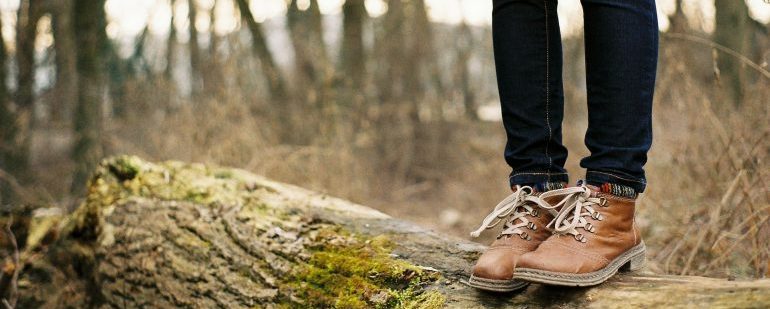
Helen Macdonald’s choice to raise and train a goshawk in the wake of her father’s death is a decision tied inexorably to the notion of “wild” life and land. H is for Hawk is a sensitive, fraught, and unexpected memoir of land, the history of its use, and what it means for a place or being to be wild as much as it is about the training of a young female hawk and the healing of a wounded human heart.
Macdonald speaks from a lifetime of falconry, dismissing the notion of untouched nature as the only truly wild: “The existence of [falcons] gives the lie to the thought that the wild is always something untouched in human hearts and hands. The wild can be human work.” As she trains her goshawk, Mabel, a challenge even with her experience, she often takes it personally, dropping the reader into her emotional turmoil in personal and imaginative ways: “I felt as if I were built of wool. Grey, loose-spun wool on an aching set of bones.” Reading this sentence over, I can’t help but imagine Macdonald’s vulnerability. In passages where she describes Mabel’s brutal—and natural—hunting and eating of small birds and mammals, it’s not hard to read her own position as a victim: victim of life, when her father dies unexpectedly. Victim of the patriarchal tradition falconry stems from. Victim of her own mind, until she sees a doctor and finds medical help in a chapter titled simply, “DRUGS.”
This admission changes Macdonald’s story. Until we arrive at this critical chapter, Macdonald prides herself on becoming like Mabel, turning loner, “a thing of eyes and will alone.” Mabel seems to personify the wild Macdonald mentions earlier, the wild formed and shaped by human hands. Yet in shaping Mabel, or more accurately, catering to her natural instincts and tendencies, Macdonald loses her grip on reality and her own identity. Hunting with Mabel, she states she forgets she is “human at all.”
I can conceptualize getting so caught up in the moment of a kill that the lines between the real and the imagined might temporarily blur. But this hawk is a trained killer, “thirty ounces of death in a feathered jacket.” Mabel must listen to a cue to come back to Macdonald’s hand and she must be released after her quarry. It’s really hunting on human terms utilizing an innate wildness.
Emotion also humanizes Macdonald. She finishes off Mabel’s half-killed creatures by breaking their spines, a process that involves “hardening” her heart. But hawks do no such thing, nor do they feel regret about allowing an animal to suffer. I was left wondering if it is possible to have any kind of human/animal relationship without placing our template of being and seeing upon them.
That there are some contradictions between Macdonald’s ideals about wildness and her reality isn’t surprising: she’s testing boundaries both in her sport of choice —“falconry is a boy’s game”— and in the landscapes she traipses (and often trespasses). “Old England is an imaginary place, a landscape built from words, woodcuts, films, painting, picturesque engravings. It is a place imagined people and people do not live very long or look very hard.” Macdonald’s feelings about the complicated histories of land and land ownership are unexpected and bold. When she encounters an older couple she’s enjoyed meeting out on walks before, it seems the perfect time to share an awe-inspiring encounter with a herd of thirty deer. Yet all the male counterpart of this couple can think is it’s a shame immigrants have access to such things. While Macdonald is not an immigrant, she takes this personally: “I wish we would not fight for landscapes that remind us of who we think we are,” she writes, dismissing the notion of “pure” and “natural landscapes.”
“Wild” is a word Macdonald knows is often connected directly with landscape. But, she argues, “You can bring [the wild] home with you,” alluding that wildness is something within, not something surface. She is once more transparent in her own struggle to reconcile her notions and beliefs with new situations that challenge what she’d held dear: during a journey to Maine to visit a close friend over Christmas, she finds herself tramping after her pal in deep snow after a red tail attacking a squirrel—in “this back-lot in the middle of town, in the midst of a home community…” This forever changes her perception of the romantic notion of falconry, the limitless pastoral fields, and the kinds of spaces where something wild can occur.
Ultimately, Macdonald recovers from her crippling grief, no less feeling but much more lucid with a healthy dose of distance mixed in: she is not a hawk, she realizes, nor does she need to be one to communicate with Mabel: “the wild is not a panacea for human soul.” Landscape stops being something precious; instead she admits, “I don’t own this land…but in walking it over and over again and paying it the greatest attention I’ve made it mine.” Lastly, with the help of the right medication and the healing power of time, Macdonald realizes “hands are for other human hands to hold.” There is a separation, and always will be, between her and the creature that moves her to find her inscape, her wild, herself.
